Oddballs and crazy characters who walked Preston's streets


If you should stroll through Preston these days you are likely to see, a busker or two, a seller of balloons, a preacher handing out religious tracts, a beggar asking for your coppers, a charity worker wanting to enrol you, or even a person selling copies of the Big Issue.
Indeed, these are common sights on all the streets of Lancashire and beyond and they reflect the state of the nation.
Advertisement
Hide AdAdvertisement
Hide AdBack in the 1930s the Lancashire Evening Post printed a couple of articles reflecting on the characters and the street cries familiar to local folk in those days and in late Victorian times.
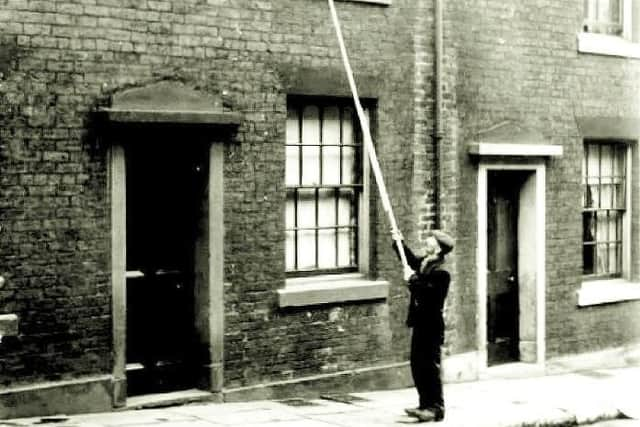

One Victorian character was Mary Ann Dick who wore a small shawl in gypsy fashion over her grey hair, and with bright blazing eyes and blackened teeth, between which she gripped a reeking clay pipe, she looked distinctively fearsome with her ‘hard masculine face’.
One of her arms was made of cork, and on the end of it was a hook which she handled with amazing dexterity as she walked through the crowds demanding alms.
Mary Ann would normally be found where the high society frequented and would walk around, ‘not humbly but with a great and purposeful dignity – much after the manner of a modern hold-up desperado’ attaching her hook to her victim’s clothes as she made her demands.
Advertisement
Hide AdAdvertisement
Hide AdAmong her contemporaries were two others who rose to distinctiveness. They were a husband and wife named locally as Dicky and Dolly. As sellers of firewood they came complete with their donkey, who sheltered under the same roof as the couple.
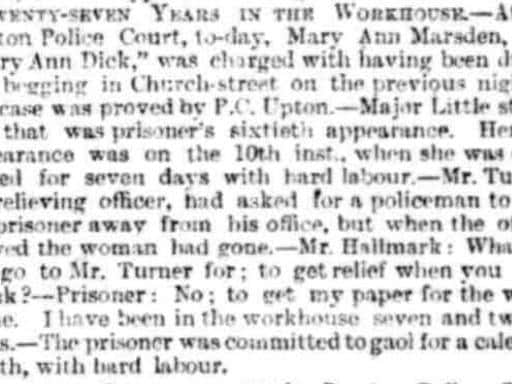

They were known to quarrel by day and night, and even their donkey was known to display a fit of temper often braying or kicking out. Nonetheless, their rows often drew crowds of onlookers many of whom left with a bundle of firewood tied up by wire. Despite their perpetual discord all three were inseparable companions. Less animated, perhaps, but equally well known was Silly Billy He was recalled as having a fat, fatuous and bewhiskered face and was said to have degenerated into a nit-wit because a love affair had turned his brain.
He posed as a sullen, vacant, pre-occupied creature, tramping the hard cobbles in his bare feet. In a time when work was plentiful, he had the skill to avoid it and many were the folk of generous nature who made sure he was never short of a penny or two.
Firewood Jack became a peg-legged institution among Preston folk who viewed him as a town jester. He was never happier than when he was publicly baiting the representatives of law and order.
Advertisement
Hide AdAdvertisement
Hide AdIn his way he provided rich fun for the crowds of pedestrians who loved to hear his crude but decidedly original sarcasm and humour usually directed at the nearest police constable.
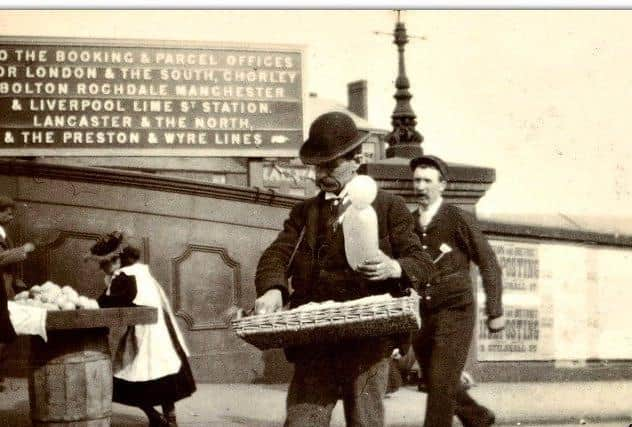

A mystery woman sheltered in the town for a number of years and was tagged as the Veiled Lady. She had an exceptional voice and with it she entertained visitors to the inns and taverns of the town. All sorts of tales of her past abounded, the most popular being that she was a fallen star from the opera. The heavy veil, which hid her identity, gave her an air of secrecy which she effectively exploited.
At the turn of the century if you had visited the Market Square you may have chanced upon two blind sisters who played a small wheeled harmonium on many a day. They sang old-fashioned hymns and simple but tuneful ballads and were assured of an appreciative audience who very kindly dipped into their pockets to reward them.
Also earning a place among the town’s characters was an old blind man who ensconced himself in one of the niches formed by the buttresses of the old Town Hall. Day after day, year after year, he was unfailingly at his post, rocking himself rhythmically hour after hour, his sightless eyes wrinkled into a smile. That cheery smile winning him the goodwill of those who watched him perform and were happy to toss a copper or two into his hat.
Advertisement
Hide AdAdvertisement
Hide AdAnother who lingered in the Market Square in the late Victorian days was the Stoical Healer who sold corn plasters aplenty. She had a tripod supported stand and although she wore a drab bonnet and shawl her apron was always spotless. While she had a much wrinkled face she was never known to smile and uttered few words.
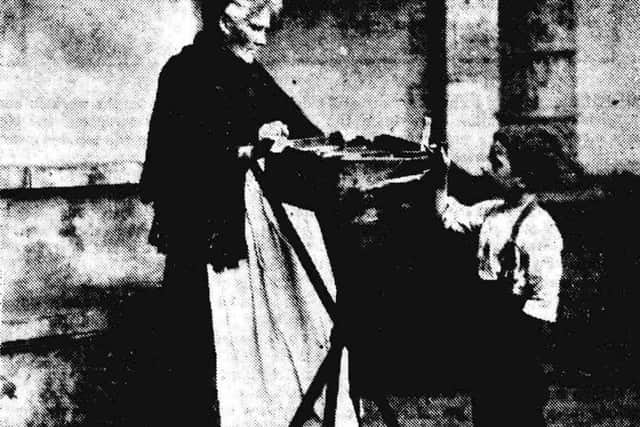

Her recipe for treatment of corns was never revealed but she was know far and wide as the soother of painful feet. From dawn to dusk on market days she stood her ground and many a penny was handed to her for her plasters and potions.
The street sellers and hawkers made the streets ring with cries. Among the most familiar was Flycatcher Joe a seller of fly-papers which he fashioned by smearing strips of torn newspaper with tuttle and bird lime.
He wore a silk hat, that was encircled with samples of his wares being filthy encrusted with flies and bluebottles, and the odd cockroach. Around the streets he rambled making his distinctive cry that went thus:
Catch ‘em alive: Catch ‘em alive,
Bluebottles, bugs, black beetles, and flies,
Catch ‘em alive.
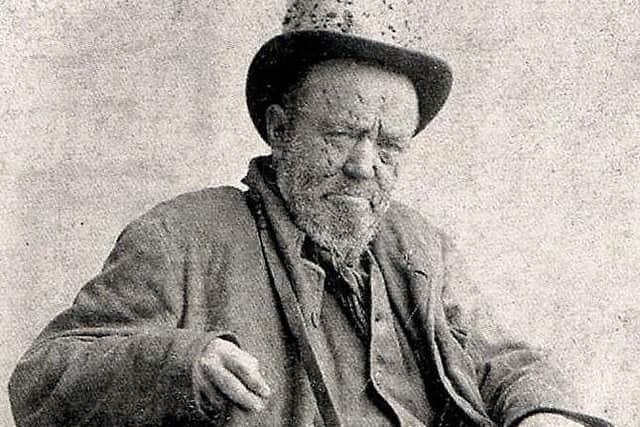

Advertisement
Hide AdAdvertisement
Hide AdAn even better vocalist along the streets was the old seller of peas who wore an apron that had long since lost its whiteness and a hard hat ensuring he stood out in a town of caps. His business flourished in the winter months as he clanged his bell and cried out thus:
Hot peas! Hot peas! Penny for a plateful:
Come and buy a penn’orth of my hot green peas!
The peas were carried in a tin container, under which a miniature charcoal furnace burned.
One character who limited himself to Sunday trading throughout the summer was the watercress man who had a superior air about him. His upper class tones being simply thus:
Watercress; fine watercress!
Right from the stream,
All crisp and fresh!
Fine watercress, fresh watercress!
The crumpet and muffin seller was another who lingered in the memory with his two huge wicker baskets. When he put his baskets down he would shout thus with his hoarse voice:
They’re a penny for four,
Take ‘em or leave ‘em,
I’ll not be sore.
You’ve got ‘em to eat,
So give me my sale.
If you don’t buy ‘em fresh,
You’ll have to buy stale.
Advertisement
Hide AdAdvertisement
Hide AdHe was a frail looking man and everyone marvelled how he carried his heavy baskets of wares when he began his tour of the streets each morning.
The importance of the street cries was an essential method of advertising with chimney sweeps, coal dealers, milkmen, fruit and fish hawkers, and gleaners of rags and rubbish all using their vocal chords to stimulate trade. Fortunately. the Lancashire Evening Post’s famous illustrator ‘Furnival’ was on hand in the 1930s and his sketches of some of those characters help us to appreciate how larger than life they really were.
Some 40 years ago the LEP historian Terry Farrell recalled some of those characters that frequented the Preston streets and he also spoke of the long gone knocker ups who in rhyme would cry out thus:
Fair and fine, be up in time or
Cold and rain, don’t sleep again.
And he recalled with affection the old newspaper vendors. Among them Old Zep a legless ragged chap who sat in his battered wheelchair selling papers in Fishergate until late at night and Harry McGarry who was usually broke and borrowed a few coppers from friends to buy his first quire of newspapers to sell on the street each day.
Advertisement
Hide AdAdvertisement
Hide AdNo doubt some characters who inhabit our streets today will be remembered just as fondly by future generations, as they toil and strive to exist in the modern world with their quirky or eccentric behaviour that makes them stand out from the crowd.